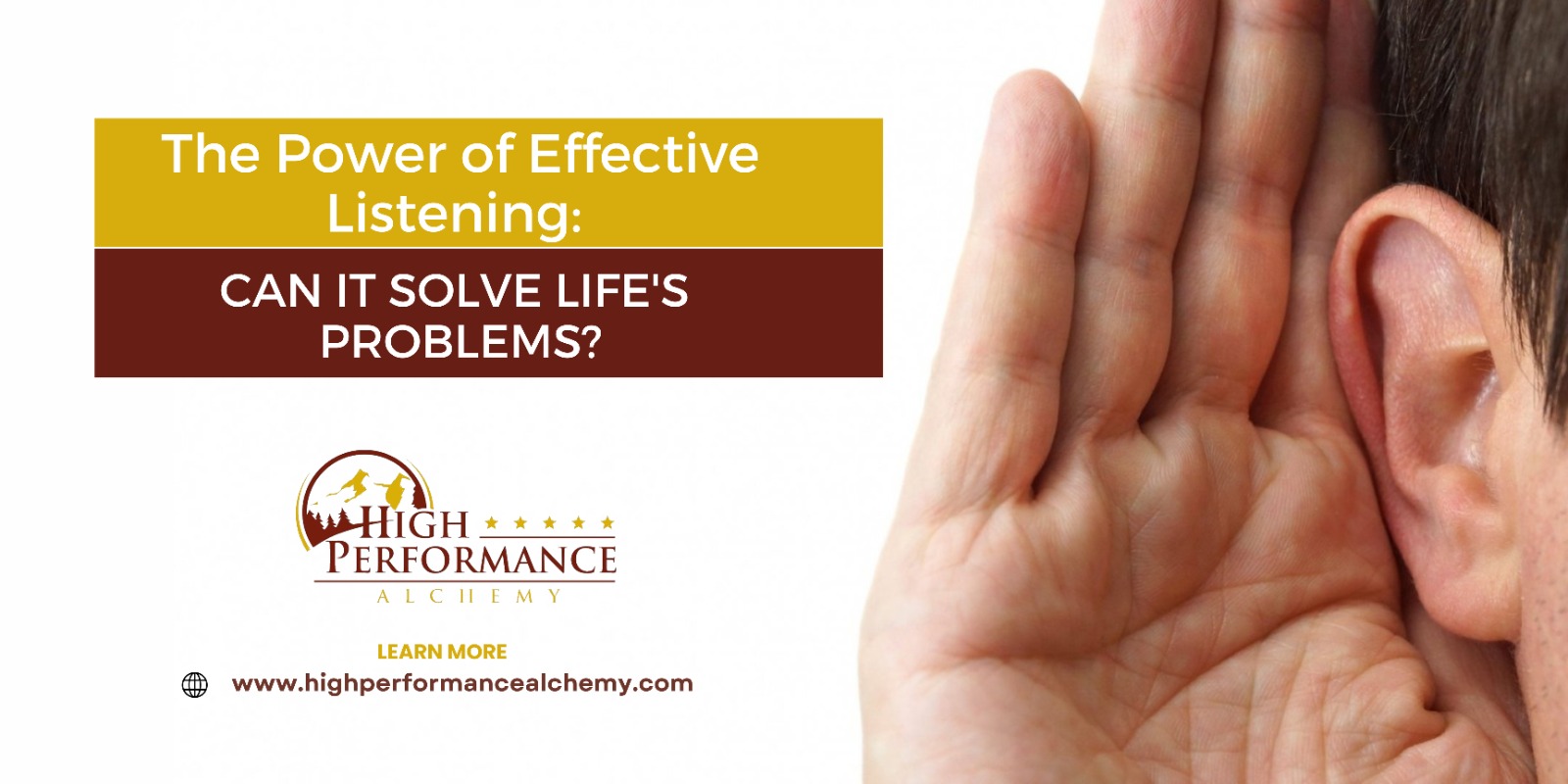Life is a journey filled with twists and turns, challenges, and opportunities. At times, it may seem like an unsolvable puzzle, with problems and dilemmas piling up. Amidst this complexity, could the simple act of effective listening be the key to solving life’s problems?
Here, we will explore the profound impact of effective listening and its potential to unlock solutions to the myriad challenges life throws our way.
The Deceptively Simple Act of Listening
Listening, you might think, is just the act of hearing words. However, effective listening goes beyond mere auditory perception. It involves actively engaging with the speaker, absorbing not just their words but their emotions, intentions, and perspectives. It’s about being present in the moment and suspending judgment.
The Surprising Connection Between Listening and Problem-Solving
Now, you might wonder, how does listening relate to problem-solving? Well, consider this: Problems, whether personal or professional, often involve communication breakdowns, misunderstandings, or conflicts. Effective listening can address these issues head-on.
Empathy: The Compassionate Listener’s Tool
One of the most remarkable aspects of effective listening is the empathetic connection it fosters. When you truly listen to someone, you step into their shoes, allowing you to understand their feelings and motivations. Empathy creates a safe space for honest communication and problem-solving.
Real-Life Examples: Listening as a Problem-Solving Catalyst
Let’s explore some real-life examples of how effective listening has the power to solve complex problems:
Workplace Harmony:
In a corporate setting, effective listening can diffuse conflicts and improve team dynamics. When colleagues actively listen to each other’s perspectives, they often discover common ground and innovative solutions. This collaborative approach enhances productivity and job satisfaction.
Marital Bliss Restored:
Nivedita and Jai had been married for a decade, but their relationship was on the rocks due to communication issues. They decided to seek Professional Coaching, where they learnt the art of active listening. By truly hearing each other’s concerns and validating their feelings, they revitalized their marriage and found solutions to long-standing issues.
Parenting Challenges:
Parenting can be fraught with challenges. Parents who practice effective listening with their children create an environment of trust and open communication. This allows them to address issues like school problems, peer pressure, and behavioural concerns more effectively.
The Therapeutic Effect of Listening
Listening, in many ways, can be therapeutic. It provides individuals with a platform to express their thoughts, fears, and worries. In return, the act of sharing often provides relief and clarity, enabling individuals to see their problems from a new perspective.
The Science Behind Effective Listening
Research in psychology and neuroscience supports the idea that effective listening has a profound impact on problem-solving. Neuroscientists have discovered that when we actively listen, the brain’s mirror neuron system is engaged. These neurons enable us to empathize with others, making it easier to understand their viewpoints and needs.
The Role of Problem-Defining in Effective Listening
Effective listening doesn’t just stop at understanding; it extends to problem-definition. By listening carefully to the details of a problem, we can gain insights into its root causes, contributing factors, and potential solutions. This nuanced approach allows for more targeted problem-solving.
The Challenge of Listening in a Noisy World
In today’s fast-paced, digital age, the art of listening is facing new challenges. With the constant barrage of information, distractions, and short attention spans, effective listening can be elusive. However, it’s precisely in this noisy world that effective listening becomes all the more valuable.
Practical Tips for Becoming an Effective Listener
So, how can you become a more effective listener and harness its problem-solving potential? Here are some practical tips:
Stay Present: Put away distractions, make eye contact, and be fully present in the moment when someone is speaking to you.
Practice Empathy: Try to understand the speaker’s perspective and emotions. Acknowledge their feelings, even if you don’t agree with them.
Ask Open-Ended Questions: Encourage the speaker to share more by asking questions that require more than a simple “yes” or “no” response.
Avoid Interrupting: Give the speaker time to express themselves fully before responding. Interrupting can be perceived as disrespectful and disrupt the flow of conversation.
Paraphrase and Reflect: Summarize what you have heard to ensure you have understood correctly. This not only confirms your understanding but also shows the speaker that you are actively listening.
Conclusion
In the intricate tapestry of life’s problems, the simple yet profound act of effective listening can be the golden thread that weaves solutions together. It fosters empathy, understanding, and open communication, allowing individuals to address challenges with newfound clarity and perspective.
So, the next time you find yourself grappling with a problem, consider the power of effective listening as your ally on the path to resolution.
Visit our website,
www.highperformancealchemy.com
Explore our website to discover how we can form a collaborative partnership to assist you and your team in attaining your objectives. Together, we can pave the pathway to triumph and achievement.

